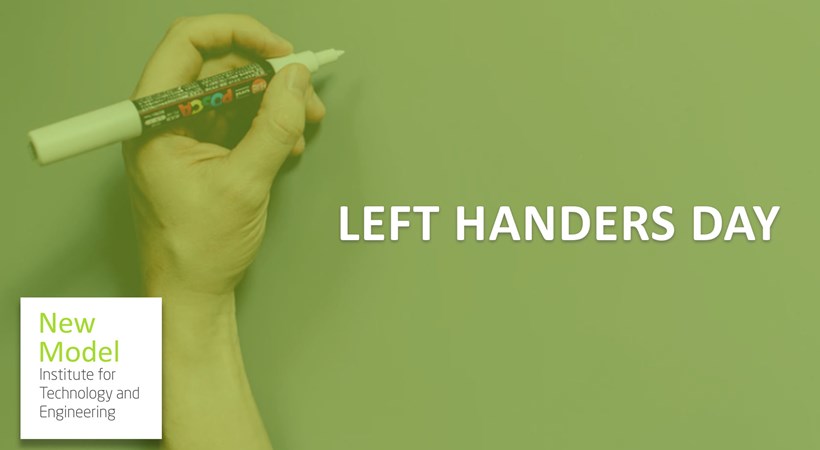Happy #lefthandersday to all of NMITE's left handed friends and supporters! This year, the very brilliant Peter Metcalfe, Associate Professor at NMITE, has written about how using the 'correct' hand is a critical survival strategy in a world where the numbers are stacked against him.
'Always use the correct hand.
It would seem, that the numbers are against me. The ratio of people who use the correct hand, as opposed to the right one, is about one in ten. I am the one, well one of the ones. Nowadays we tend to consider the positive aspects of diversity—indeed many would argue that genetic diversity is essential for species survival, so what my editor and friend calls ‘left-handedness’ surely deserves high regard. Back in the seventies, when I was young, this was not the case. I was different. Awkward. A difficult child who would not conform. Some may say this trait has continued. I had to sit on a special table. I wasn’t even allowed to use a pencil.
All because I use, the correct hand.
The numbers are against me. I have scalded myself turning the tap to hot by accident. I must change hands to start the car. If I use an older telephone, I must thread my opposite hand through the cord. Everything seems to require an extra step. Flicking through a book for a specific page. Scissors. Tape measures. Power buttons. Cisterns, Microwave Control Panels. Door entry keypads (6a not included). No, you can’t be a pilot (Note: Airbus common cockpit configuration went some way to fixing this, albeit twenty years too late).
But wait. Are these things not meant to be there? Is this extra step the very reason why I use the correct hand? Is it not for me; is it because of me?
Let me explain this to those of you in the majority, those using the wrong hand. You see, you just do it. Whatever it is. Without thinking. Without hesitation. You might say it comes naturally. And in thinking it is the natural thing to do you introduce an element of risk that I escape. Using the correct hand means I process the potential consequences of an action long after it has placed you in harm’s way. With your majority-appropriate designs, you have removed diversity which in effect removes a key element of your survival strategy. Did you deliberately engineer in a failure mode that could affect 90% of the population? Without even realising it, have you placed your survival strategy firmly in the, correct, hand of the 10%? Is my use of the correct hand nature’s way of protecting the whole?
I don’t know. I am not a big-data analyst. I am not an evolutionary biologist. I guess by accident, or by design, I am some sort of engineer. Is this about choice, chance or pre-determination? I don’t know. What I do know is I always use the correct hand, and for those who also use it: The survival of the species might just depend on us.'







